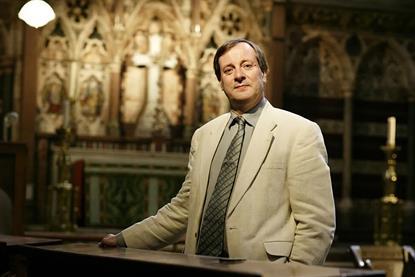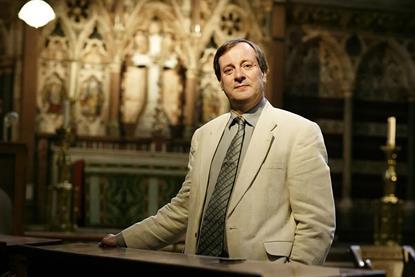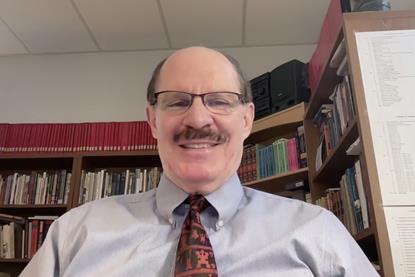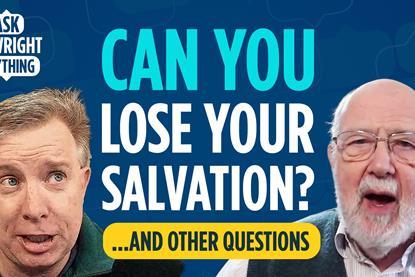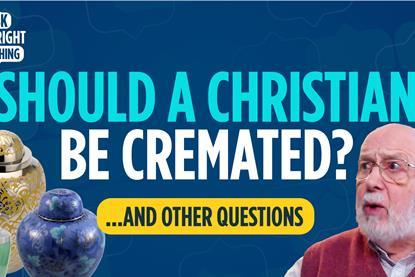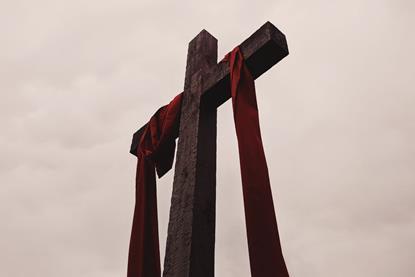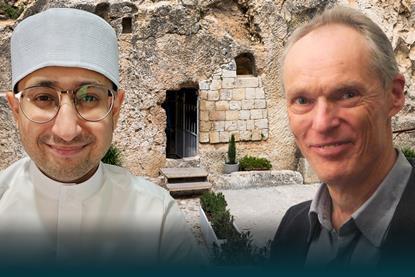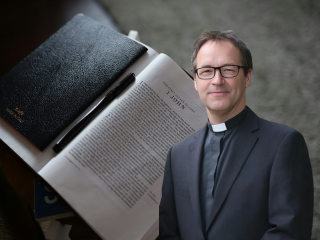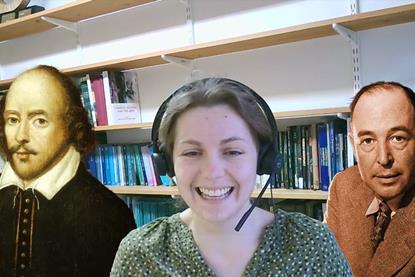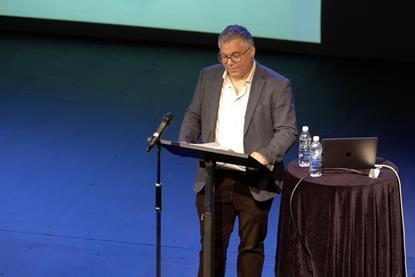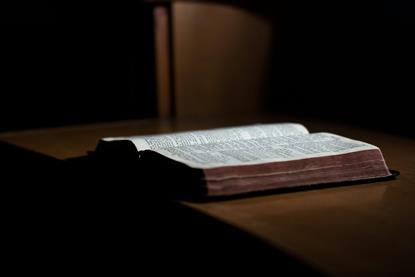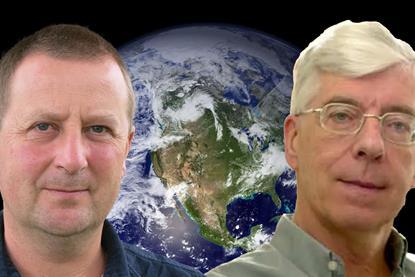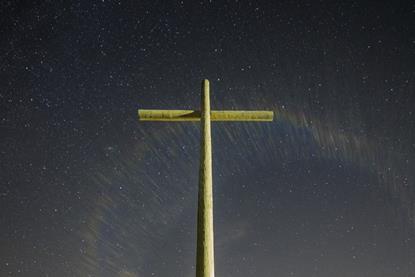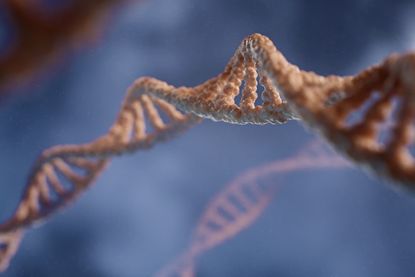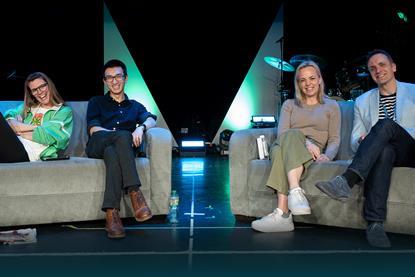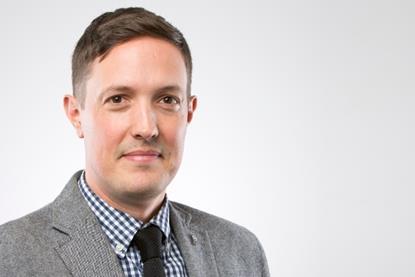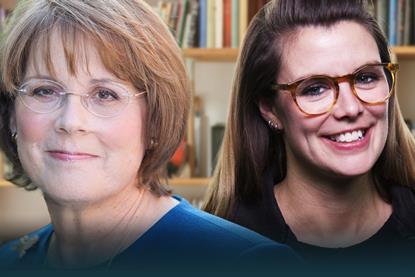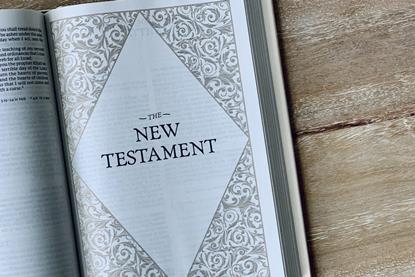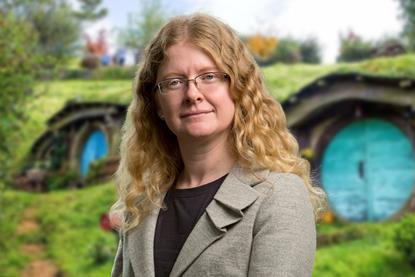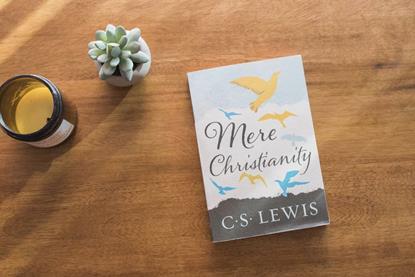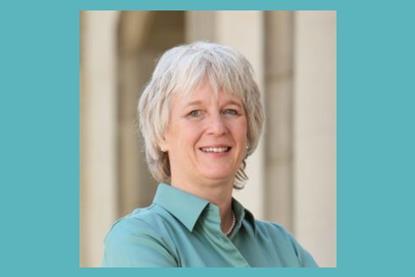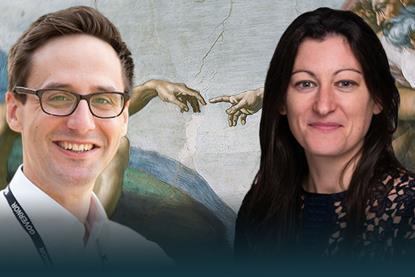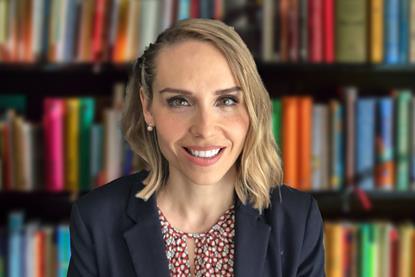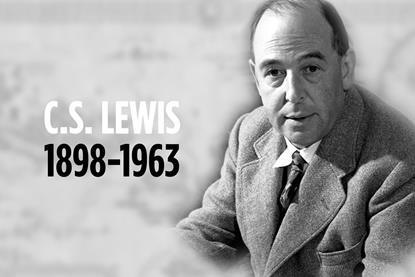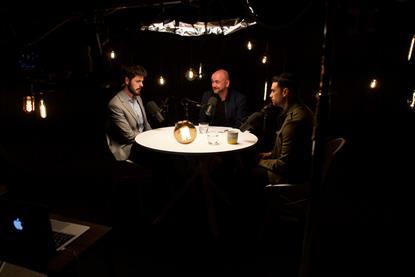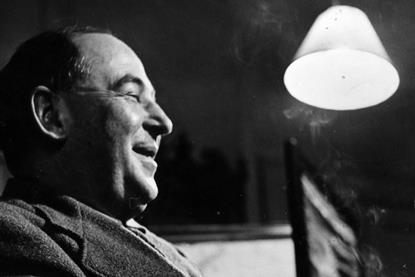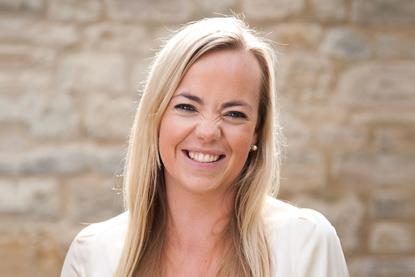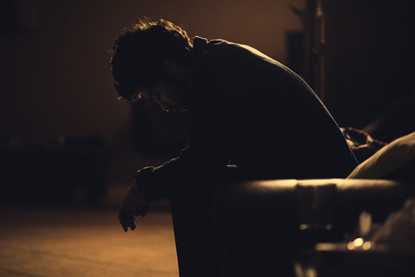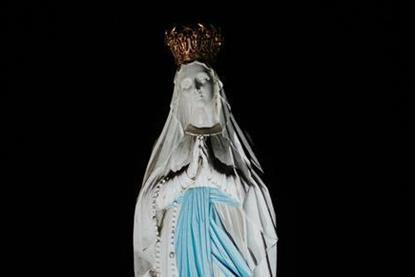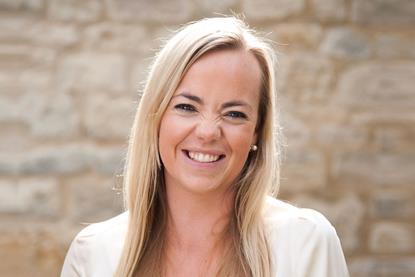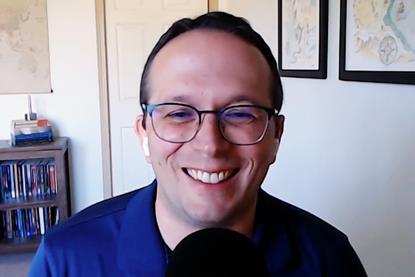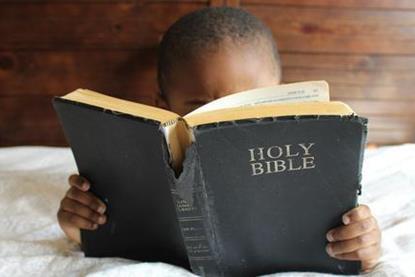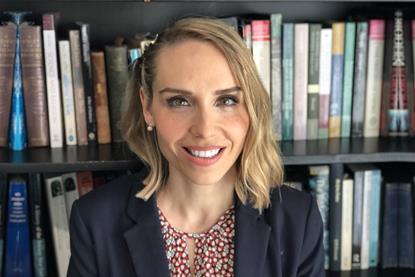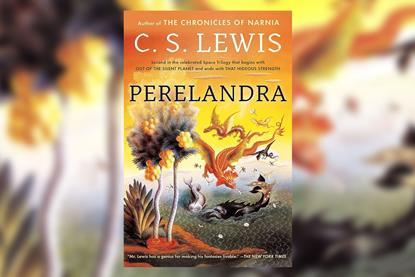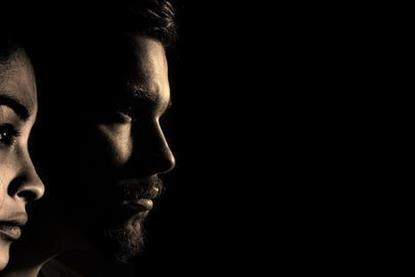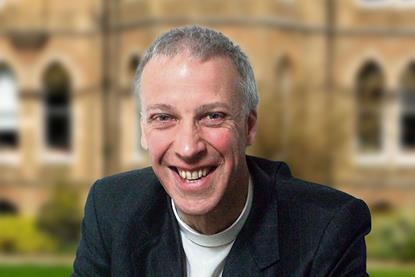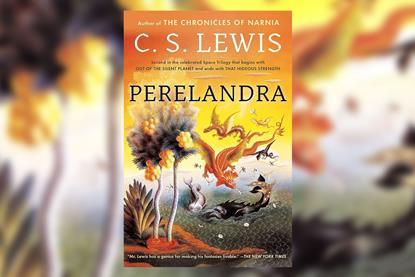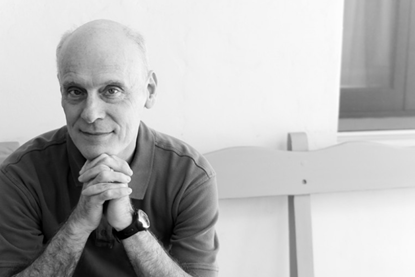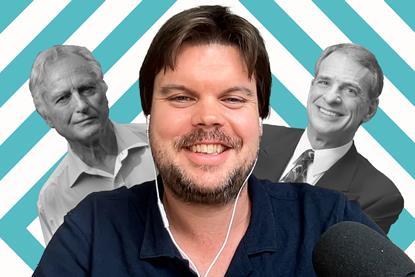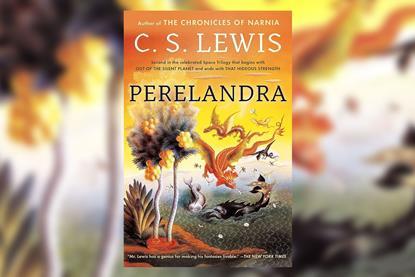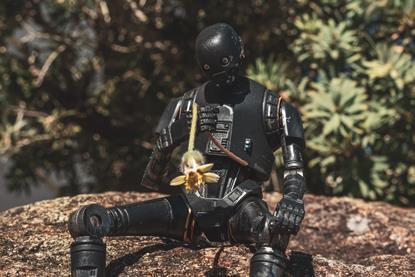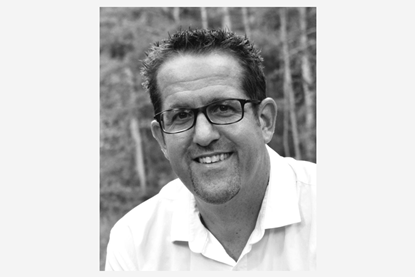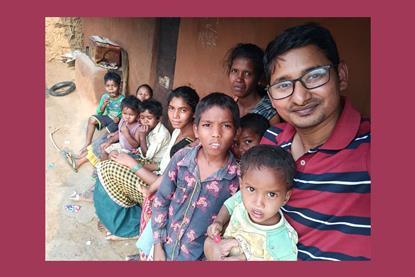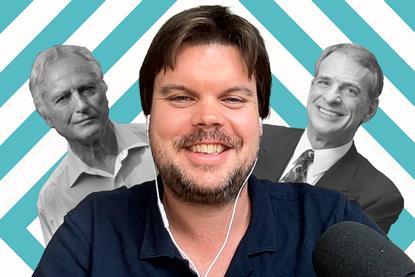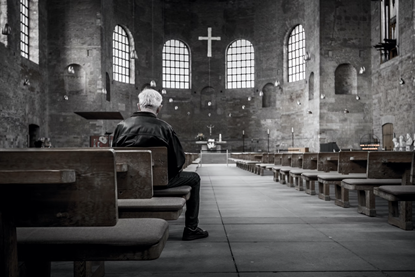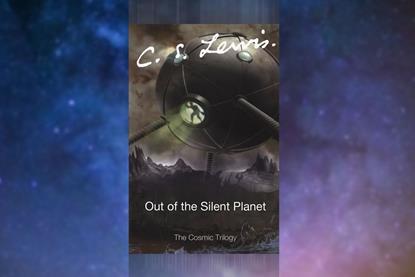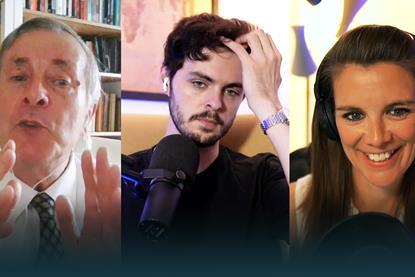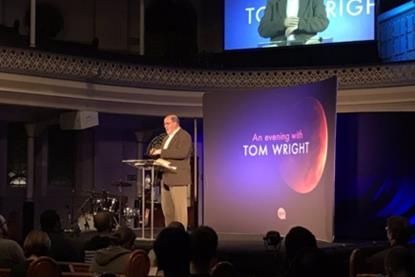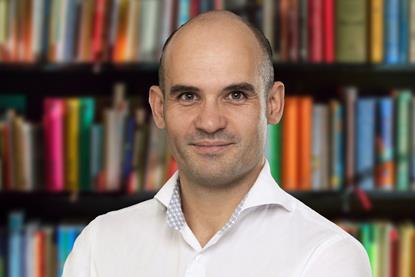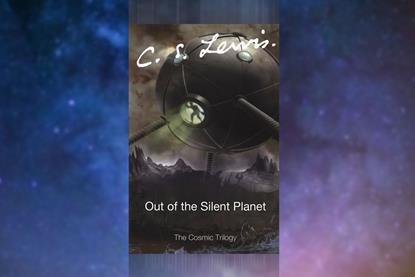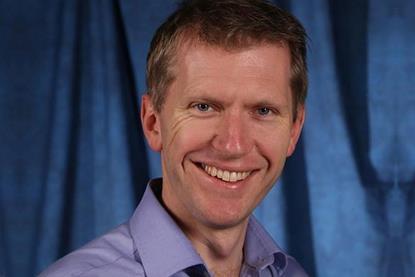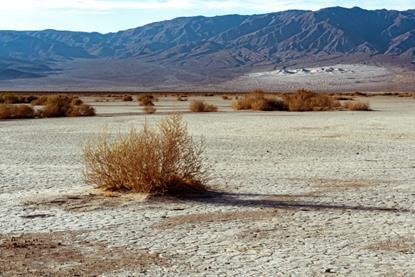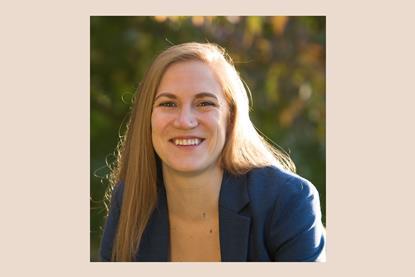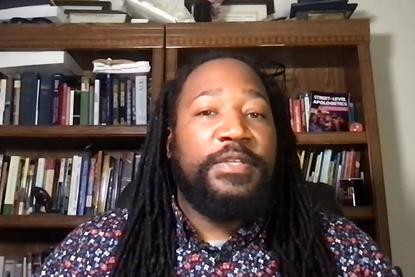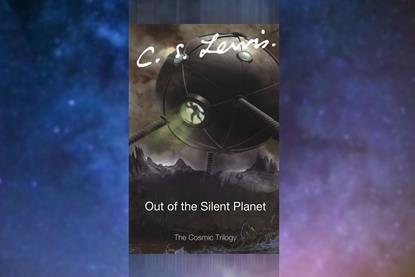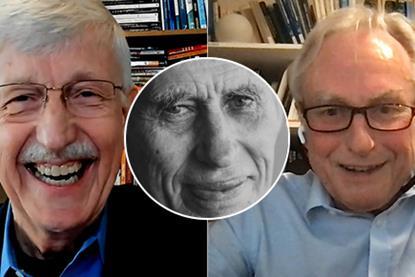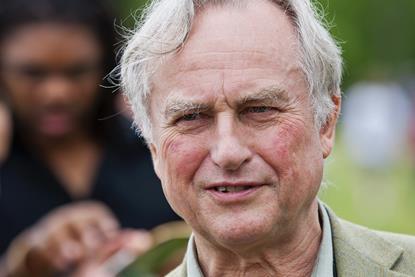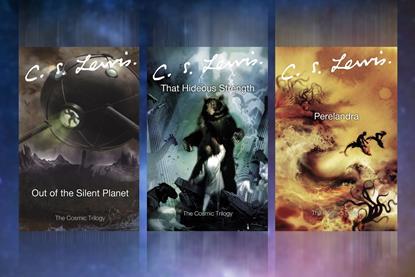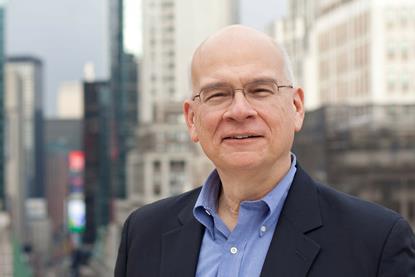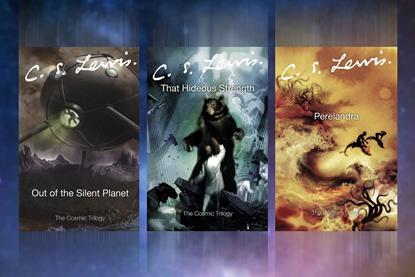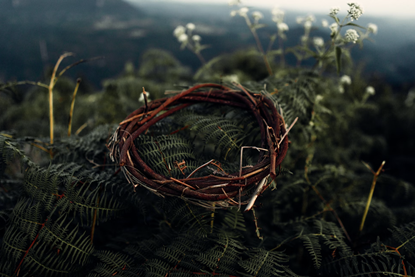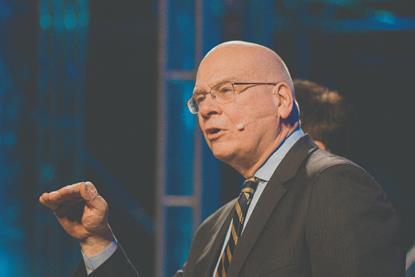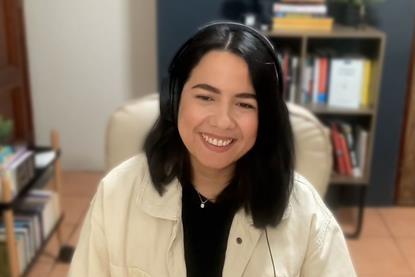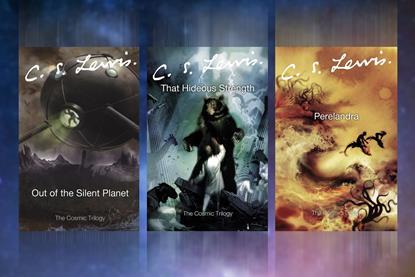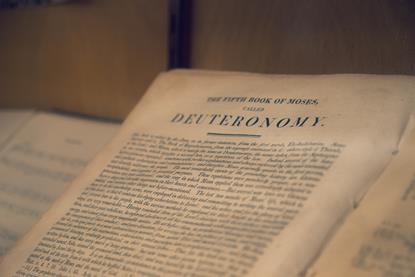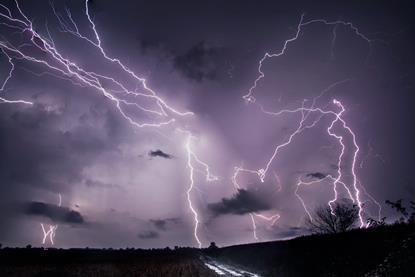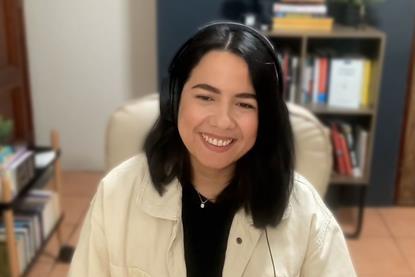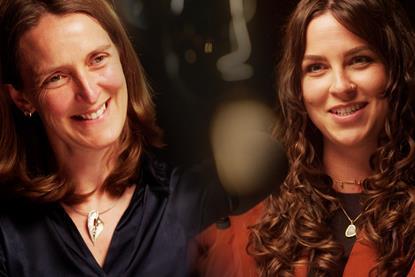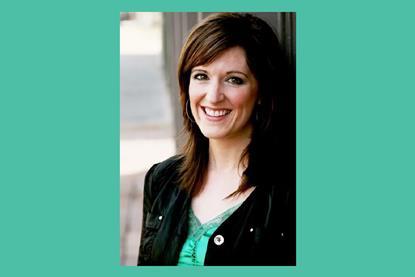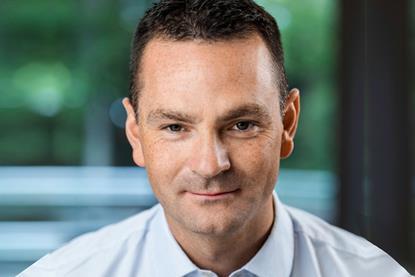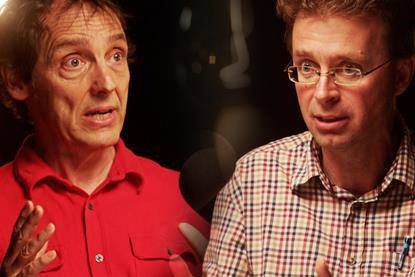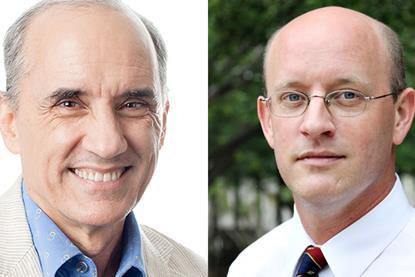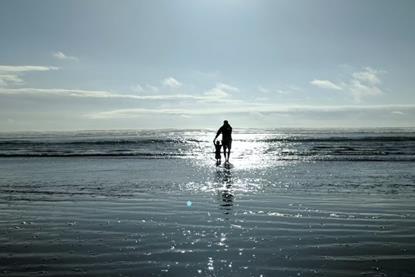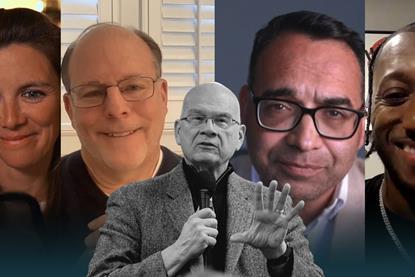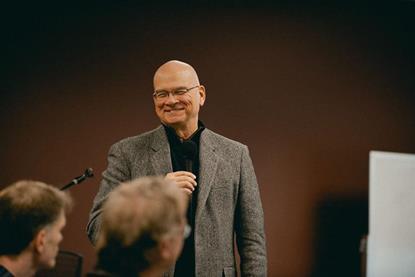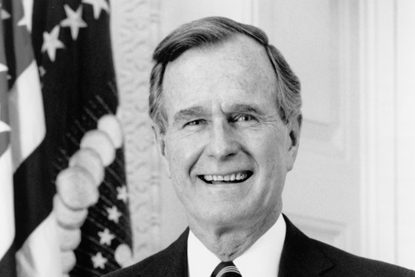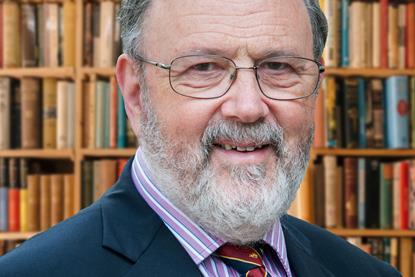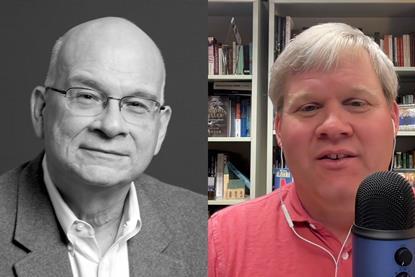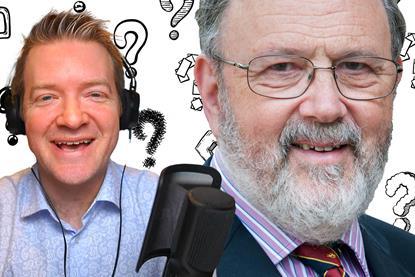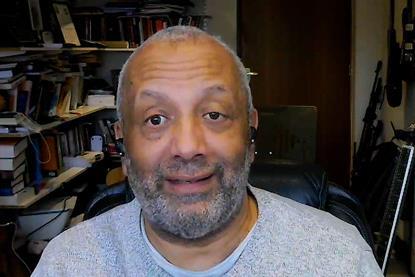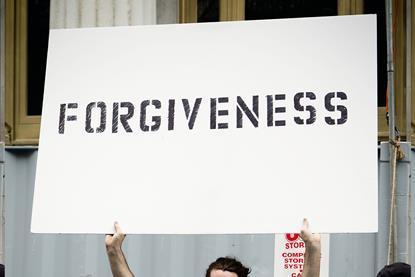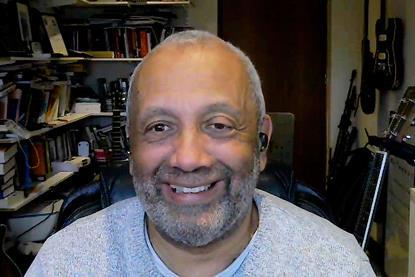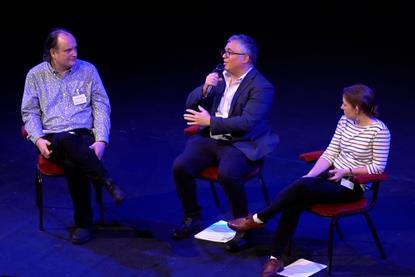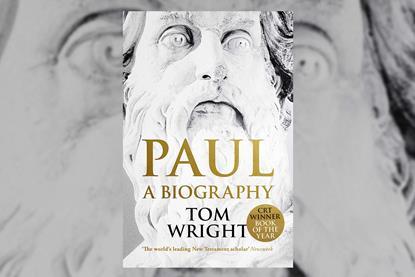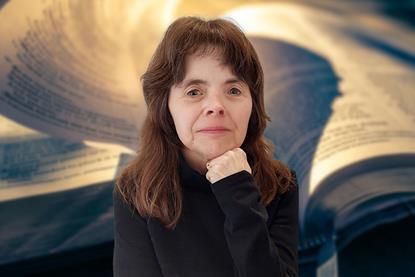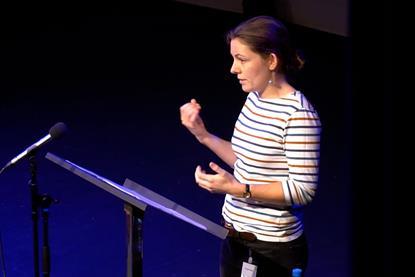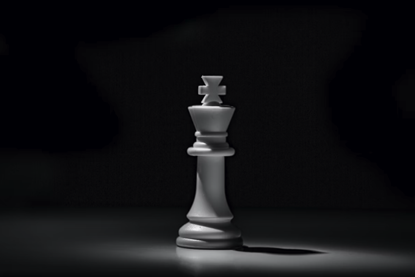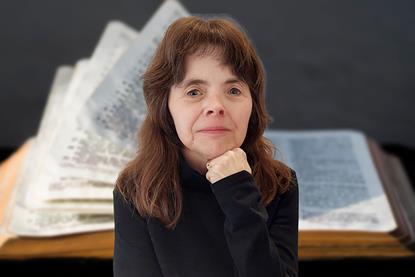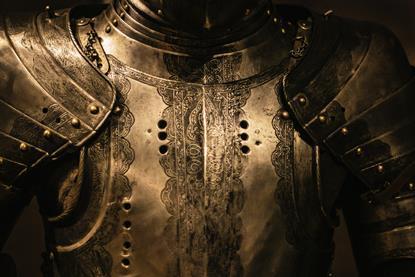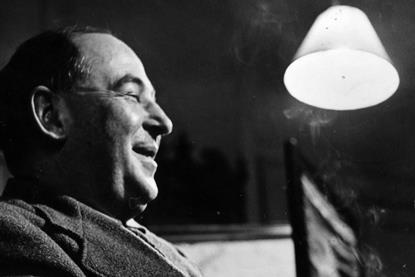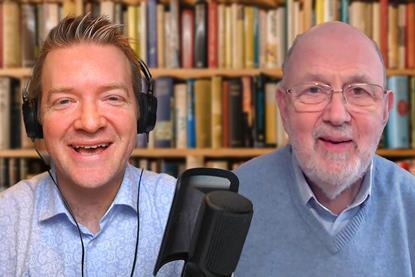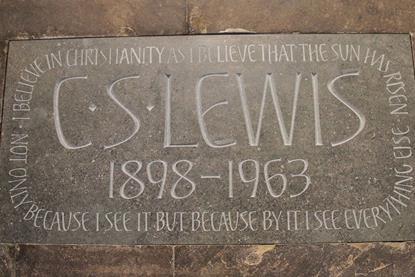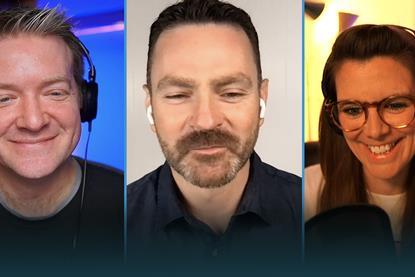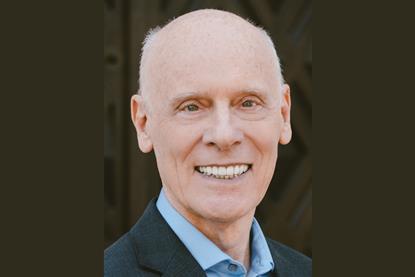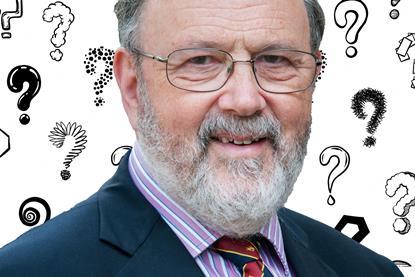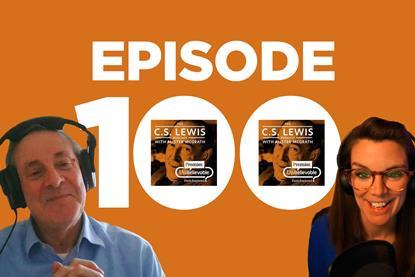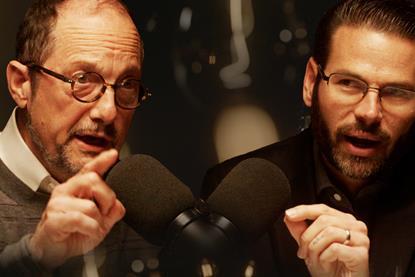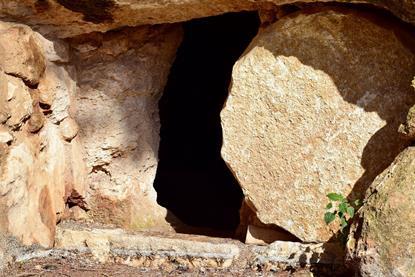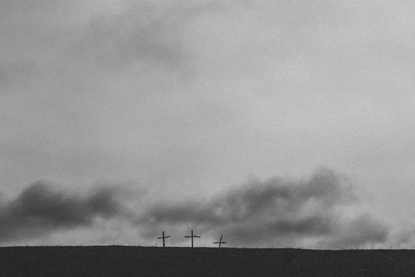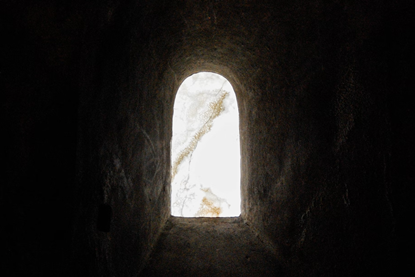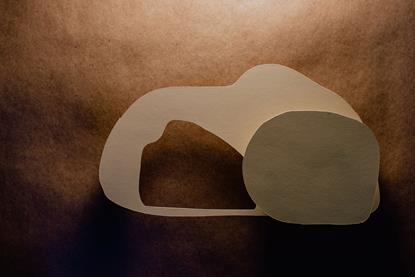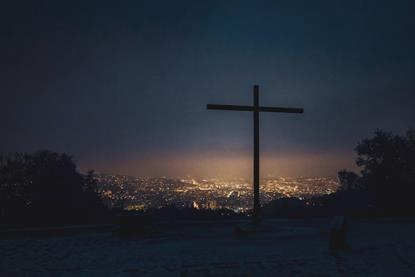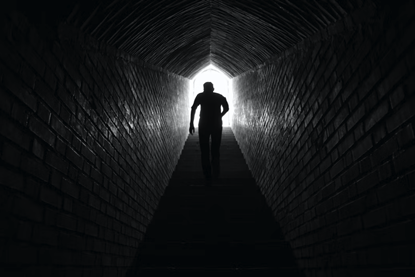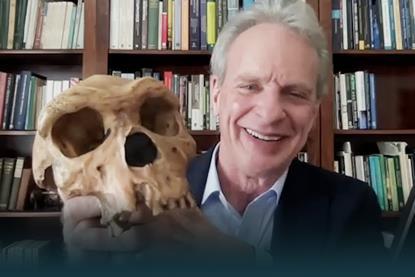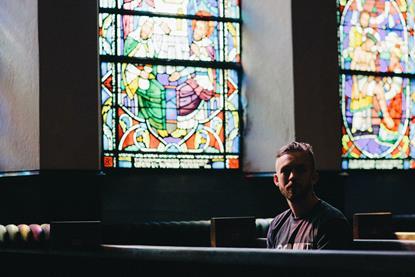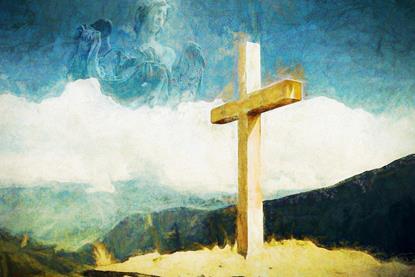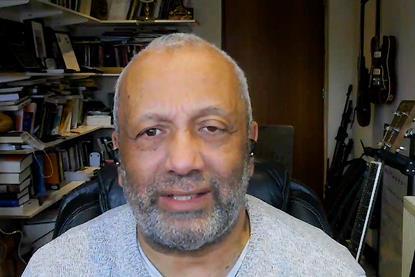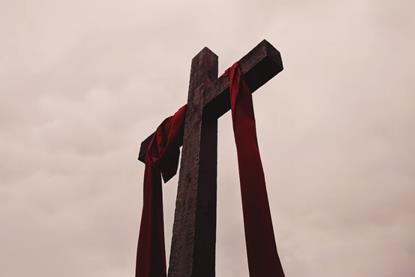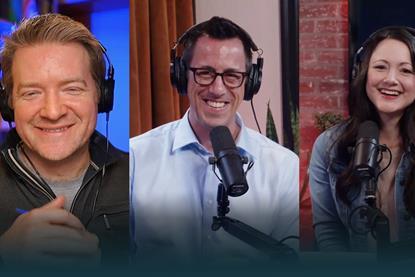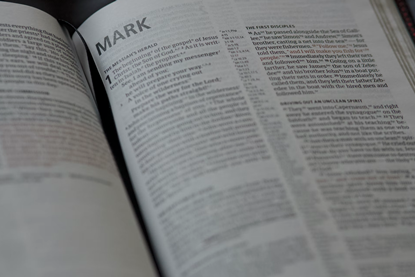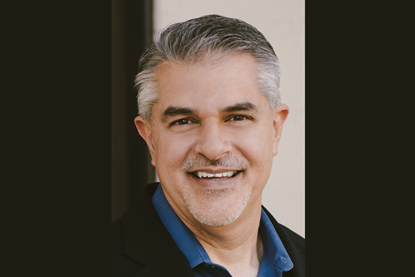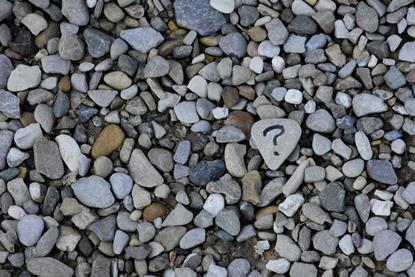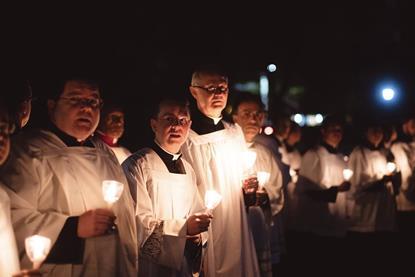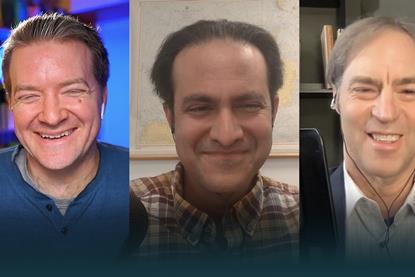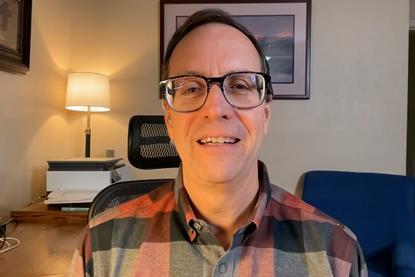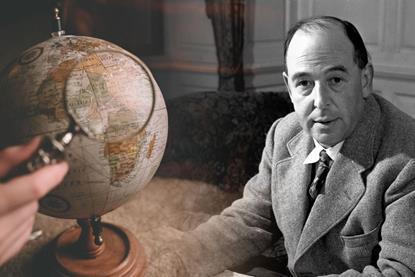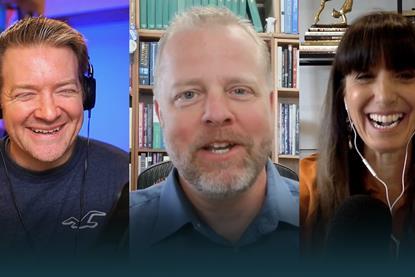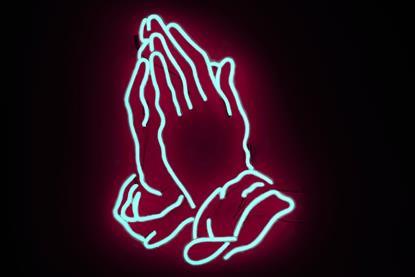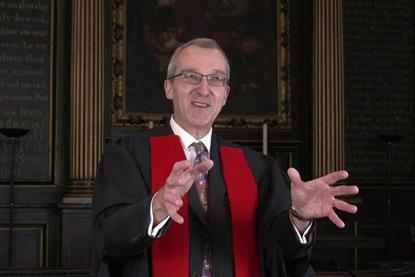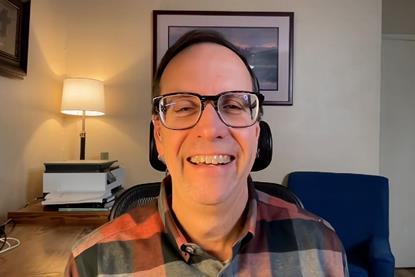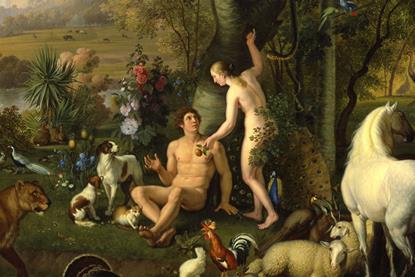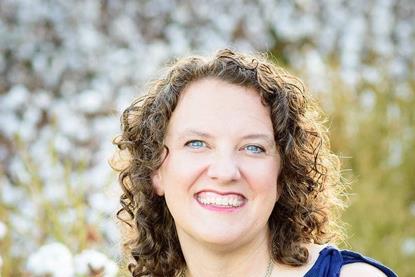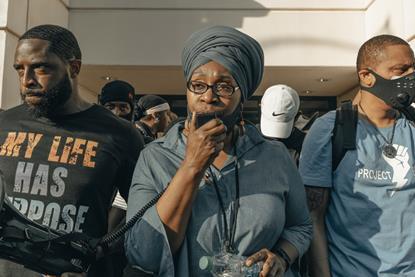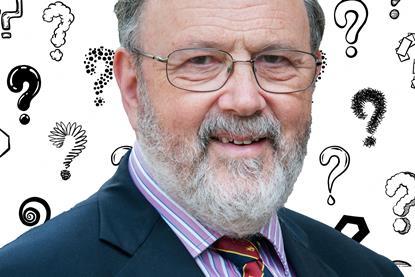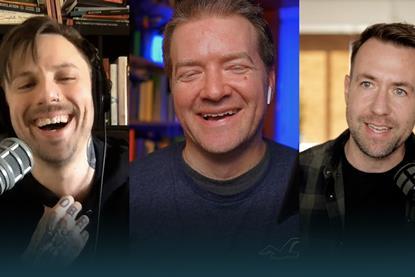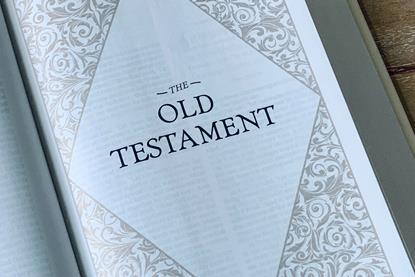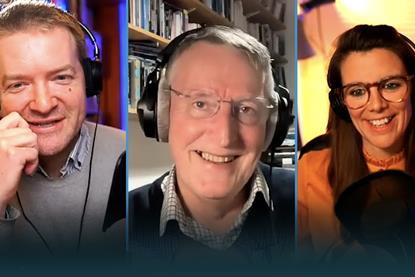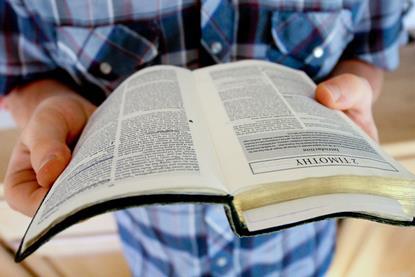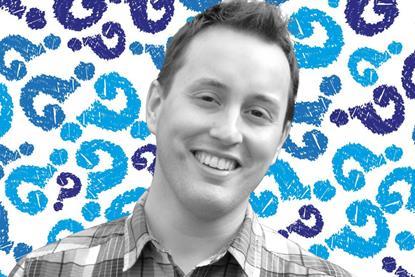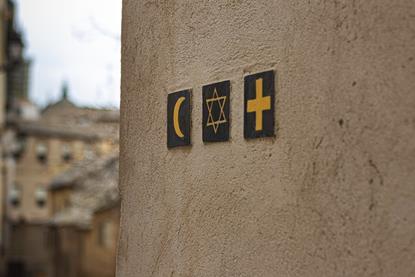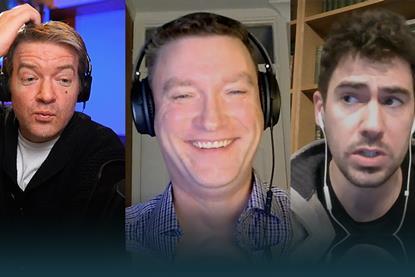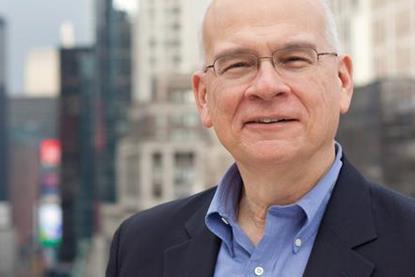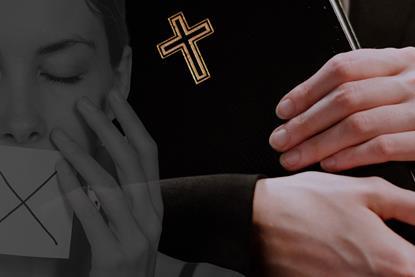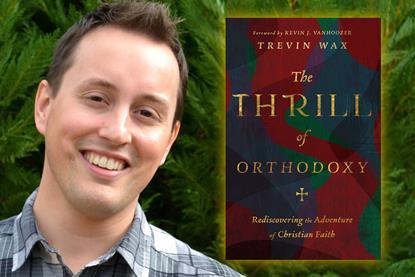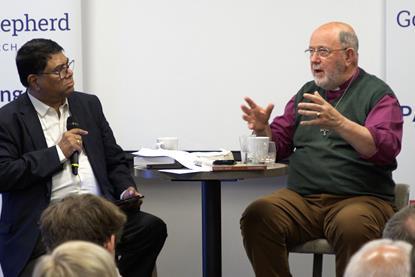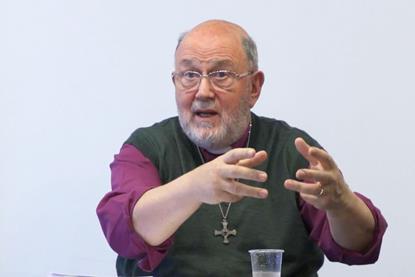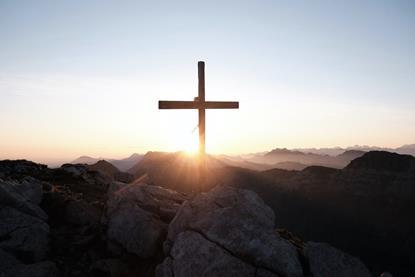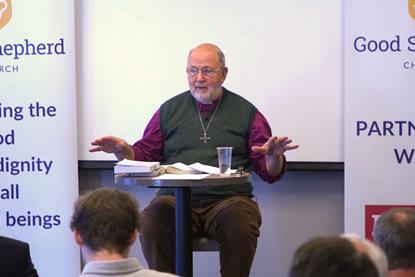Theology
#229 Alister McGrath: Reflecting on CS Lewis’ work as a theologian
In today’s episode, Ruth Jackson is joined again by Professor Alister McGrath, to discuss theology in a multi-part series. They reflect on Lewis’ work as a theologian, covering questions such as: What are some of the key theological topics Lewis unpacks in his work?
#228 Alister McGrath: Was CS Lewis a theologian? Part 2
In today’s episode, Ruth Jackson is joined again by Professor Alister McGrath, to discuss theology in a multi-part series. Why do people not consider Lewis a theologian? Who are some of the people who do take him seriously as a theologian, and has he become one in modern times? What can we learn from Lewis’ approach to theology?
Do we have a soul? Or are we just bodies and brains? Is death the end? Dr Claire Gilbert vs Harry Amos
In this live edition of Unbelievable?, Andy Kind hosts a fascinating conversation on the nature of the soul and spiritual experience.
The CS Lewis Podcast #225 Paul Anderson: CS Lewis, the Bible and theology
Paul Anderson, a Professor of Biblical and Quaker Studies at George Fox University in Oregon, is back to discuss C.S. Lewis’ approach to the Bible and theology.
Can you lose Salvation? Why do churches keep splitting? What is covenant theology?
In this episode of Ask NT Wright Anything, Tom Wright and Mike Bird tackle church divisions, explain the differences between covenant theology and dispensationalism, and explore the Salvation Army’s unusual stance on sacraments. They dig deep into Hebrews 6, wrestling with what it really says about salvation security.
Will God resurrect my cremated body? NT Wright on God’s grace, the Law, and new life after cremation
In this episode of Ask NT Wright Anything, Tom Wright and Mike Bird explore the deep connections between ‘hesed’ in the Old Testament and ‘charis’ in the New, offering a rich picture of God’s love and faithfulness. They tackle the sensitive topic of cremation and Christian burial, affirming the unshakable hope of resurrection.
A Lion, a Lamb, and a Lab Coat - The Hope for Unity in Science and Faith
The final part of a four-part series: From Theistic Evolution to Intelligent Design: Why I changed my mind
The Blueprint and the Biopsy - Finding God in Design, Not Just Morality
Part 3 of a four-part series: From Theistic Evolution to Intelligent Design: Why I changed my mind
The Body Will Rise - Why Easter Is the Answer to Our Deepest Longing
There’s a line in Ecclesiastes that says, “God has set eternity in the human heart.” And we feel it.
The Cross Is Not the End - Why a Torture Device Became the World’s Greatest Icon
On its surface, the cross is a strange thing to venerate. It was an instrument of torture. A public execution device.
Did Jesus Really Die and Rise from the Dead? David Instone-Brewer v Ijaz Ahmed hosted by Andy Kind
Heading into Easter, we explore if the resurrection is key to Christianity and how it’s viewed in Islam. Rev Dr David Instone-Brewer and Islamic apologist Ijaz Ahmed debate Jesus’ crucifixion, resurrection, and divinity.
Cultural witness and the purpose of theology, with Graham Tomlin
Graham Tomlin has been a vicar, a theologian, a college principal, a bishop and now spearheads a project dedicated to trying to re-enchant the UK with Christian faith. In this episode we reflect with him about his ministry, the current state and status of theology in the church, the struggles of the Church of England where he served as a bishop until recently, and why he’s now focusing on helping non-churchgoers begin to see the world through ‘Christian spectacles’.
The deceptive simplicity of William Lane Craig’s Kalam Cosmological Argument
Philosophical reflection on infinity leads to inevitable conclusions about the nature of reality and the existence of a powerful personal creator
The CS Lewis Podcast #194 Sarah Waters: How Lewis grew to love Shakespeare
What was Lewis’ favourite Shakespeare play? Dr Sarah Waters, assistant professor of language and literature at Sterling College, Kansas, delves into Lewis’ literary accessibility and theological insights, uncovering the timeless relevance of his work.
The CS Lewis Podcast #180 David Clare: Ecstatic experience
How did Lewis approach ecstatic experiences, particularly in light of his Ulster Protestant background? Dr David Clare of Mary Immaculate College, University of Limerick continues his talk given at the C.S. Lewis Group at Ulster’s spring mini symposium. He also answers questions from the live audience. The event was entitled ‘C.S. Lewis and the Land of His Birth: Re-rooting Lewis in Ulster & the Island of Ireland’. The title of Dr Clare’s talk was ‘“Lit Up Inside”: C.S. Lewis’s Joy & Ulster Protestant Ecstasy’.
What is truth, and what happens if society rejects that it even exists?
What is truth, and what happens if society rejects that it even exists? Two recent Premier Unbelievable debates highlight the difference between a Christian and a relativist worldview
Science, faith and the future of humanity Denis Alexander v Julian Baggini hosted by Andy Kind
In this episode of Unbelievable?, host Andy Kind brings together two thought-provoking voices to explore the intersection of science, faith, and the future of humanity.
Does believing that all will be saved ignore the fundamental reality of sin?
Apologist Erik Strandness ponders on an important topic that can be ignored in the debate over ‘universalism’ – what we are to be saved from - the reality of sin and Jesus’s central role in its defeat
Assisted suicide: Euthanasia tourism takes off in the US amid fresh push to change law in Britain
Today we pick up a number of stories and updates in the conversation around assisted suicide. Long since legal in a growing number of states in the US, a new report has detailed how things are liberalising further. Some states now permit non-residents to cross state lines solely to die, creating a new market in euthanasia tourism for those living in less liberal parts of America.
Does DNA’s language point to a creator?
The complexity and communicative qualities of our genetic building blocks are not easily explained by science, but instead point to intelligent design, argues Joel Furches
“Why didn’t God heal my Dad’s cancer?” (and other questions) with Amy Orr-Ewing, Ben Thomas, Ben Chang hosted by Ruth Jackson
Ever find yourself asking tough questions of God? Struggling to see His goodness and wondering, “Are you really there, God?”
The CS Lewis Podcast #166 Philip Tallon: Is pain a megaphone?
Can pain ever be good for us? What about children with cancer? How do we account for animal suffering? Will our pets be in heaven? Does our theology of heaven impact our thoughts around suffering? Dr Philip Tallon shares his thoughts about Lewis’ The Problem of Pain.
How churches can embrace science: insights from scientist-Bishop Richard Cheetham
Former Bishop Richard Cheetham, with a background in physics and theology, argues for a harmonious relationship between science and faith. Discover how churches can engage with scientific advancements to enrich their ministry.
Election year: How to avoid a witch hunt
2024 signals significant elections for many countries around the world. Apologist Joel Furches explores the historical relationship between religion and government, looking at how to ensure truth prevails
Unbelievable? Kathy Keller on anniversary of Tim Keller’s death
As we approach the one year anniversary of apologist Tim Keller’s death on May 19th, we sit down with his wife Kathy Keller, author and speaker in her own right, to discuss a number of listener’s questions
Are The New Testament documents reliable?
Apologists Nick Peters and Joel Furches explore how accurate this ancient writing really is
The CS Lewis Podcast #152 Is ‘The Lord of the Rings’ a religious work?
Dr Holly Ordway, author of Tolkien’s Faith explores what JRR Tolkien meant when he described The Lord of the Rings as a “fundamentally religious and Catholic work”. Do we see any elements of his faith in the book? Is it possible to discern a theology? Are there any characters Tolkien identified with? Plus, how does Leaf by Niggle relate to Tolkien’s magnum opus?
Why did Jesus die? CS Lewis, redemption and the atonement
Pastor and author Dan Salter explores the image-based atonement theory through an imagined conversation with CS Lewis about the birth, death and resurrection of Jesus
Ask NT Wright Anything #208 Questions about Doctrine, the Trinity and Baptism (Classic)
What is the doctrine of the Trinity? Is the Trinity key to being a Christian? Is the doctrine of Baptism an essential? And should we be baptised if we’ve been christened? Tom Wright addresses these questions and more in this episode.
Christians in science: How a microbiologist became an apologist
Dr Anjeanette ‘AJ’ Roberts is a microbiologist and a Christian. Joel Furches spoke to her about her faith and career
Jesus speaks supernovae
John Van Sloten, author of God Speaks Science, reflects on a conversation with a Mars Rover researcher
Unbelievable? Does secular humanism or Christianity offer a brighter future? Sara Stevenson vs Neil McKain
Andy Kind hosts today’s Unbelievable where the debate topic is Does Secular Humanism or Christianity offer a brighter future for the UK?
The CS Lewis Podcast #140 Sarah Irving-Stonebraker: Does history matter?
Associate Professor Sarah Irving-Stonebraker shares how significant CS Lewis was in her journey from atheism to Christianity. As an academic historian, she explores how great books speak to ever-present questions and looks at why the past matters. Why is Lewis still relevant 60 years after his death?
The CS Lewis Podcast: #134 Alister McGrath: Is there an expiry date on Lewis’ relevance?
In the final part of their discussion on whether CS Lewis is still relevant 60 years after his death, Professor Alister McGrath and Ruth Jackson ponder whether he also appeals to agnostics, atheists and those of other religions. Plus, is there a modern-day CS Lewis? Where should someone start if they are engaging with Lewis for the first time? And will Lewis ever cease to be relevant?
Unbelievable? Is religion good or bad for society? Ben Shapiro v Alex O’Connor The Big Conversation – Episode 7 | Season 5
In this bonus episode of The Big Conversation’ formidable Daily Wire host and renowned political thinker Ben Shapiro goes head-to-head with Oxford graduate of philosophy and theology, now international public speaker and debater, Alex O’Connor. Hosted by Andy Kind, Shapiro and O’Connor debate Is religion good or bad for society? What is the concept of free will? Does it even exist? What about the idea of the self, and the foundations of morality in society, and do we all have to agree on them?
The inaugural CS Lewis Reading Day: Why should Tolkien geeks have all the fun?
CS Lewis podcaster, David Bates, shares why he helped initiate a campaign to commemorate Lewis with an annual Reading Day on November 29th
Unapologetic #79 Amy Orr-Ewing: Is there any evidence for a virgin birth?
In the final part of their discussion, Dr Amy Orr-Ewing discusses whether we can believe in a virgin birth, why this birth is significant and how we can trust the witness of Mary. Plus, why is justice important to the Christmas story? And, how can Jesus be both fully God and fully man?
Can the Bible teach us anything about depression?
Rico Villanueva, Langham Partnership’s regional commissioning editor for Asia, shares how studying the psalms of lament have helped him with his bouts of depression
Ask NT Wright Anything #194 Icons, praying to saints & dividing over sexuality (Classic)
From the archives: Tom answers listener questions around whether shrines are pagan, infant baptism is biblical and how we can live in unity with theological differences around sexuality.
What is Wicca and how does it differ from Christianity?
Apologist Joel Furches explores the central beliefs of Wicca and looks at its historical relationship with Christianity
Unapologetic #78 Amy Orr-Ewing: Why are women central to the Christian story?
Dr Amy Orr-Ewing, author of Mary’s Voice, explores the context of Mary, mother of Jesus, and looks at why women play such a significant role in Christianity. Plus, what is the Magnificat, why is it so revolutionary? And how is it relevant today?
The CS Lewis Podcast #131 David Bates: CS Lewis Reading Day
David Bates and his team at Pints With Jack have helped establish a day to celebrate CS Lewis and his work. His fellow Inkling, JRR Tolkien, already has a special reading day, but “why should the Tolkien nerds have all the fun?”! Listen in to hear why David thinks Lewis is still relevant today and how you can get involved with the inaugural CS Lewis Reading Day on Lewis’ birthday - November 29th.
Ask NT Wright Anything #192 Big questions from and about children (Classic)
From 2020: Tom answers listener questions on how to talk to children about tricky things like suffering and hell. Plus, we talk about parenting and discipling children and young people
Unapologetic #75 Sarah Irving-Stonebraker: How an atheist academic moved towards belief in God
Former atheist-turned Christian Associate Professor Sarah Irving-Stonebraker shares how studying some of the founders of modern science challenged her assumption that religion and science were fundamentally opposed. She also highlights the moment she realised her atheism could no longer sustain her moral commitments.
The CS Lewis Podcast #128 Perelandra: It’s not for nothing that you are named Ransom
Looking at Perelendra, Alister McGrath explores key questions raised by CS Lewis: What is good? Should we be frightened of God? What is significant about Ransom’s name?
Ask NT Wright Anything #190 Ananias and Sapphira and more tricky theological questions (Classic)
From the archives: How do we reconcile the New Testament account of Ananias and Sapphira being struck dead with the cross-shaped vision of a God of love? These and other tricky theological questions on original sin, Open Theism and why God considers us ‘worthy’ of his love are answered by Tom.
Unapologetic #74 Michael Lloyd: Should we all study theology?
Rev Dr Michael Lloyd, author of Cafe Theology, shares his story including why he got ordained, how he ended up in academia and why he changed his mind on the ordination of women. He also discusses how to assess the veracity of doctrines and why he believes everyone should study theology.
The CS Lewis Podcast #127 Perelandra: Evil, suffering and sin
Alister McGrath continues to discuss Perelandra, looking particularly at the topics of evil, suffering, sin, demon possession and divine justice. How can God allow suffering? What can be done to redeem evil?
Christians in science: Why an astronomer believes the Bible is reliable
Apologist Joel Furches interviewed astronomer Dr Hugh Ross about science and his belief in God
Is Western culture eroding Christianity?
Sam Reimer, professor of sociology and author of Caught in the Current, explores how authority, belief and behaviour have changed over the years and the impact this has had on faith
Unapologetic #73 Peter Byrom: Dawkins’ argument from complexity
In the final part of their discussion, Peter Byrom delves into Dawkins’ argument from complexity, suggesting it may be a circular assumption. They unpack Dawkins’ fascinating exchange with Francis Collins in 2022, where Dawkins admits he may have a presupposition towards materialism. Plus, what does the future hold?
The CS Lewis Podcast #126 Perelandra: Free will, desire and the Fall
Alister McGrath unpacks some of the theology within the second book of the Space Trilogy. What was Lewis’ understanding of the Fall? What if the Fall hadn’t happened? How does he explore the concepts of free will, desire, good, love, truth and demon possession in Perelandra?
Is AI conscious and does it matter?
Dr Eve Poole considers whether we have to learn to be responsible for the souls we are creating now we are creating artificial intelligence and robots in our own image
Discovering purpose: An engineer's evolution from atheism to a life filled with meaning
Apologist Jana Harmon shares the story of Neil Placer, who discovered the Christian faith via years of atheism
Ask NT Wright Anything #188 Jean Vanier and when leaders let us down (Classic)
From 2020: In the wake of the news that L’Arche founder Jean Vanier was responsible for sexual abuse of women during his ministry, Tom Wright responded to questions from listeners let down by leaders and the church. Be part of the Ask NT Wright Anything live show in London at Unbelievable?
Bennu the asteroid: Why does the Universe exist and why should we care?
Nasa’s Osiris-Rex returned from a seven-year mission with asteroid Bennu’s dust, aiming to shed light on the Universe’s formation. Erik Strandness examines the project’s theological and philosophical impacts.
Are humans better than animals?
Apologist Nathan Rittenhouse shares his thoughts on Psalm 8 and its ramifications
Transformed: How a despised Indian child became an evangelist
Jehu Limma, founder of HopeGiving Foundation, shares his remarkable journey from “untouchable” to helping children out of poverty
Why secular sceptic Nir Eyal thinks we need Church
Theology student David MacPherson reflects on a recent episode of The Diary of a CEO, where Nir Eyal discussed the benefits of church and a worshipping community
Unapologetic #71 Peter Byrom: Discovering Dawkins
In the first episode of this three-part series, Peter Byrom shares his fascinating story as told in the chapter he contributed to Coming to Faith Through Dawkins. He outlines how he encountered the apologist William Lane Craig via the New Atheists and discusses his growing disillusionment with Dawkins’ “devastating” argument from complexity.
Does deconstruction signal the death of faith?
Erik Strandness reflects on deconstruction and reconstruction following an Unbelievable show on this topic
The CS Lewis Podcast #123 Out of the Silent Planet: Death, suffering and The Fall
In the final episode on Out of the Silent Planet, Alister McGrath explores Lewis’ depiction of humanity, death, evolution and suffering. He also discusses the framework Lewis provides to help us reflect on these big questions.
Unbelievable? Coming to faith through Dawkins - Part 2: Is there a new New Atheism? Alister McGrath & Alex O’Connor
In the second part of their discussion based on the book Coming to Faith Through Dawkins, theologian Alister McGrath and YouTuber Alex O’Connor discuss where we may be heading in regards to religion and atheism.
Ask NT Wright Anything #185 Questions on Crucifixion and Atonement (Classic)
From the archives: Just in time for Easter we bring you a show (recorded before lockdown) in which Tom answers listener questions on the crucifixion, the nature of atonement and forgiveness.
Is the presence of God merely an illusion? A scientist investigates
Ken Miles, clinical academic and author of From Billiard Balls to Bishops: A Scientist’s Introduction to Christian Worship, explores whether we can feel the presence of God in an age of science
Unapologetic #69 Phil Knox: Does evangelism matter?
Evangelist Phil Knox, author of Story Bearer and The Best of Friends, shares some of his story with Ruth Jackson, speaking about the impact of his dad’s death at a young age. Plus, they discuss why evangelism matters and how we can share our story and be a “good news person in a bad news world”.
The CS Lewis Podcast #122 Out of the Silent Planet: Love, sex and intuition
Alister McGrath continues to explore Out of the Silent Planet, looking at some of CS Lewis’ language around love and sex. He also looks at the different life forms on Malacandra and the distinction between rational and non-rational life forms.
Unapologetic #68 Andy Bannister: Do Muslims and Christians worship the same God?
A Christian street preacher who was arrested for alleged hate speech, which included criticising Muhammad, was found not guilty following a recent court hearing. Dr Andy Bannister, director of Solas and author of Do Christians and Muslims worship the same God?, responds to some of the accusations made by the preacher (eg Muhammad married a 6-year-old and had sex with her when she was 9) and discusses how we can engage with some of these big questions.
Is there more to life than mere matter?
Dr Erik Strandness explores the relationship between the soul, mind, brain, body and spirit following a recent Big Conversation about near death experiences
Do near death experiences contradict Christian belief and doctrine?
Journalist Heather Tomlinson explores near death experiences and theology in light of a recent Big Conversation on this topic
Matters of Life & Death: Q&A: Chronic Fatigue Syndrome, psychosomatic illness, AI acing exams, and the limitations of true creativity
Delve into another episode of listener questions! We’re addressing feedback on Chronic Fatigue Syndrome and exploring the enigma of ‘psychosomatic’ illnesses. Plus, we’re discussing the impact of AI like ChatGPT on academic assessments.
From radical atheist to Christian via rigorous intellectual study
Former atheist, Dr Stefani Ruper, was intellectually convinced of secular atheism, but found that it lacked substantive answers for her life. More than 13 years of scholarly pursuit of truth led her to choose belief in God. Jana Harmon shares her story
Unapologetic #67 Adam Coleman: 60 years on has Martin Luther King Jr’s ‘dream’ been realised?
Monday 28th August marked 60 years since the 1963 March on Washington for Jobs and Freedom, where Martin Luther King Jr delivered his iconic ‘I have a dream’ speech on the steps of the Lincoln Memorial. Adam Coleman’s grandfather was personally invited to attend the event by Dr King. Adam spoke about his grandfather’s experience and reflected on the last 60 years - how far we’ve come and how far we still have to go when it comes to racial justice.
The CS Lewis Podcast #120 Out of the Silent Planet: Weston, Devine and JRR Tolkien
As we delve into the first book of the trilogy, Out of the Silent Planet, Professor Alister McGrath looks at some of its key themes. He explores the characters of Weston and Devine, looking at whether they represent particular ideologies and how Lewis exposes issues with their worldviews. Plus, why was JRR Tolkien such a fan of the book?
Unbelievable? Richard Dawkins & Francis Collins Debate (Replay) + Clash with Richard Swinburne + New Big Conversation Episodes Reveal!
We revisit a riveting dialogue from Season 4 of The Big Conversation, from 2022.
It is time to move on from Richard Dawkins
Following a recent Unbelievable? featuring Richard Dawkins, author Dr Peter Harris shares his thoughts about the infamous atheist
What is a near-death experience and what can it teach us?
Following a recent Big Conversation, journalist Heather Tomlinson explores near-death experiences
The CS Lewis Podcast #119 Has The Space Trilogy stood the test of time?
Alister McGrath concludes his introduction to Lewis’ Space Trilogy by exploring parallels with The Chronicles of Narnia. He offers tips for getting into these three books, speculates why they haven’t been turned into films and shares his favourite moment in the trilogy.
Remembering Tim Keller: Death has lost its sting
Entrepreneur Max Anderson shares his final reflections on the great Tim Keller who influenced his life in a deeply profound way
The CS Lewis Podcast #118 Evil, evolution and theological reflection in The Space Trilogy
Alister McGrath explores some of the theological themes within Lewis’ trilogy, such as incarnation, atonement and the problem of evil. How did Lewis view the relationship between science and religion? What did he think about evolution? How did he critique certain worldviews through his fiction?
Remembering Tim Keller: How our daily work has an eternal value
Entrepreneur Max Anderson reflects on his New York pastor and friend’s teaching on work
Remembering Tim Keller: The purpose of marriage
Entrepreneur Max Anderson reflects on his New York pastor and friend’s teaching on marriage
Remembering Tim Keller: The heart is an idol factory
Entrepreneur Max Anderson reflects on his New York pastor and friend’s teaching on idolatry
Remembering Tim Keller: Jesus’ teachings only matter if the resurrection is real
Entrepreneur Max Anderson reflects on his New York pastor and friend’s apologetic teaching
Remembering Tim Keller: Religious people may be just as lost as the irreligious (maybe more)
Entrepreneur Max Anderson reflects on his New York pastor and friend’s teaching on the Prodigal Son
Remembering Tim Keller
Entrepreneur Max Anderson reflects on the many things he’s learnt from his New York pastor and friend
Unapologetic #64 Ana Ávila: Has science disproved religion?
Ruth Jackson continues her conversation with Mexican writer Ana Ávila who studied clinical biochemistry. Why is there a perceived conflict between science and religion? Does science contradict the Bible? Can you prove there is a God?
The CS Lewis Podcast #117 Vivisection, mental health, racism and sexism
We dive into some of the important issues explored in Lewis’ Space Trilogy. Why was he so vehemently opposed to animal experimentation? What would Lewis say to those experiencing mental health struggles today? Plus, Alister McGrath responds to the accusation that CS Lewis was sexist and racist.
Ask NT Wright Anything #179 Can I trust the Old Testament? (Classic)
From Dec 2019: Tom answers questions about when the Book of Daniel was written, is the book of Job historical and does studying the Old Testament undermine faith?
Christians in science: How a military meteorologist became a theologian
Charles Clough is a retired military meteorologist who became a Christian while at MIT. Apologist Joel Furches spoke to him about being a scientist and a theologian
Unapologetic #63 Ana Ávila: Faith, questions and apologetics in Latin America
Mexican writer Ana Ávila, who lives in Guatemala, shares her insights into religion in Latin America. How do we probe our beliefs? What does evangelism look like in a nominally Christian culture? How is apologetics received in some of these countries and what are the big questions being asked?
Unbelievable? Sharon Dirckx vs Emily Qureshi-Hurst • Do consciousness and near-death experiences point to an afterlife?
The Big Conversation - Episode 4 | Season 5
Women in apologetics: Overcoming sexism, societal expectation and vicious online attacks
Former non-theist Mary Jo Sharp found answers to many of her questions through Christian apologetics. She is now passionate about sharing this with others, despite the great personal cost at times. She shares some of her story with Joel Furches here
Ask NT Wright Anything #177 Am I Unequally Yoked? (Classic)
From Sept 2019: Am I unequally yoked to my wife? What’s the biblical view of singleness? Was Jesus at my mother’s deathbed? What’s the point of it all? Tom answers the personal, pastoral and puzzled questions of listeners.
Unapologetic #61 Vince Vitale: Why does God allow suffering and how can I cope?
Philosopher Dr Vince Vitale presents some of his PhD research around evil, suffering and theodicy. He and Ruth Jackson share their own experiences of suffering miscarriages, demonstrating that this is not just a theoretical question of why there is pain, but a deeply practical one of how we are to deal with this agony.
Ask NT Wright Anything #176 Free will and Problem of Evil (Classic)
From Sept 2019: An atheist listener asks a question about free will and the problem of evil. Will it be possible for there to be another ‘fall’ in the new creation? And the hosts of the Libertarian Christian Podcast have some questions for Tom about living as Christians in today’s world.
Unbelievable? Philip Ball & Nick Spencer • Can Science and Religion Tell us What it Means to be Human?
The Big Conversation - Episode 3 | Season 5
Why is Thor not happy?
Author Mark Roques explores ideas about science, religion and the Enlightenment through this thought-provoking and entertaining interview with the Norse god
What is Islam and how does it differ from Christianity?
Apologist Joel Furches highlights the core beliefs of the fastest growing religion in the world and compares it to the two other Abrahamic faiths
The CS Lewis Podcast #110 An atheist and Christian reflect on CS Lewis’ apologetics
60 years after his death people continue to read, use and quote CS Lewis’ apologetics works. In this replay of an Unbelievable show, originally broadcast in October 2010, Justin Brierley speaks to Lewis scholar Dr Michael Ward and former Christian-turned atheist Dan Barker. Here, they discuss Lewis’ arguments, focussing particularly on his Natural Law argument for God in ‘Mere Christianity’.
Becoming a father: How a difficult birth and my subsequent PTSD diagnosis heightened my belief in God
Father’s Day can be a really difficult time for many people for a variety of different reasons. Here, Elliott Rae, who works to support and champion families, shares his experience of fatherhood, mental health challenges and helping men to be more vulnerable
Unbelievable? Tim Keller: Life, Death, and Legacy with Lecrae, Pete Wehner, Krish Kandiah | Christian Witness in a Culture War
Join us on Unbelievable presented by Ruth Jackson as we delve into the extraordinary life and work of the late Dr. Timothy J. Keller, a humble yet ambitious church leader who shaped faith in the modern world. Unbelievable? show host Ruth Jackson is joined by three guests who knew and worked with Keller. Lecrae, Grammy award-winning hip-hop artist and actor; Dr. Krish Kandiah, author and social activist; and Pete Wehner, journalist and senior fellow at Trinity Forum all offer candid insights into the profound ways Keller impacted their lives both personally and through his extensive body of work.
Unapologetic #55 Collin Hansen: Tim Keller (1950-2023) on women, family life and homosexuality
We continue our conversation with Collin Hansen, author of ’Timothy Keller: His Spiritual and Intellectual Formation’, who highlights some of the key women in Keller’s life, particularly his wife Kathy. Hansen explains why Tim Keller was a complementarian and speaks about Keller’s brother, Billy, who died from AIDS in the 1990s.
What can George Bush’s 1992 failed presidential campaign teach us about salvation?
Erik Strandness challenges us to rethink the way we share our faith for the sake of our young people
Ask NT Wright Anything #171 Tom answers Personal Qs on favourite preachers, authors and his own faith (Classic)
From 2019. Listeners want to know about Tom - Who are his favourite authors? If he could have dinner with anyone from the 20th Century who would it be? Why is he an Anglican? Has he ever struggled with his own faith?
Unapologetic #54 Collin Hansen: Remembering Tim Keller (1950-2023)
Following the death of Tim Keller on Friday 19th May, Collin Hansen, author of ’Timothy Keller: His Spiritual and Intellectual Formation’ spoke to Ruth Jackson about Tim Keller’s early life and shared some of his favourite memories of the New York apologist.
Ask NT Wright Anything #170 Tom on his life and faith, and the meaning of the cross (Classic)
First broadcast in 2017, NT Wright talks to Justin Brierley about his early life and how his faith developed over the years, before turning to the question of what the atonement means, as laid out in his book The Day The Revolution Began. This interview was first broadcast on The Profile podcast https://www.premierchristianradio.com/theprofile
Unapologetic #53 John Swinton: Disability, learning difficulties and dementia
John Swinton, professor in practical theology and pastoral care at Aberdeen University and a former psychiatric nurse, challenges the way we approach disability, ensuring we create spaces where everyone belongs and has their spiritual needs met. We also discuss difficult questions around dementia, such as what it means to know God when you have limited conceptual intellectual capacity.
Ask NT Wright Anything #169 Broken Signposts and questions on forgiveness and salvation (Classic)
From 2020: Tom talks about his book “Broken Signposts” and answers listener questions around how God forgives, conversion and how you can be sure you’re saved.
Unapologetic #52 John Swinton: Supporting people with mental health challenges
May marks Mental Health Awareness Week, so we spoke to John Swinton, professor in practical theology and pastoral care at Aberdeen University, who spent 16 years as a psychiatric nurse. He shares his thoughts about how to care for those experiencing mental health difficulties, particularly young people.
Is atheism just a ‘lack of belief’ in God?
Apologist Joel Furches explores various definitions of “atheism” and the consequent impact of these
The CS Lewis Podcast #104 Out of the Silent Planet and Lewis’ Belfast background
English lecturer Dr Sarah Waters answers questions about Out of the Silent Planet, following her presentation at CS Lewis symposium Now We Have Faces. She was joined for the Q&A by drama and theatre studies lecturer, Dr David Clare, who speaks into Lewis’ Irishness.
Does Big Bang cosmology point to a creator?
Writer Steve Schramm investigates the Big Bang theory and explores its implications
Unbelievable? King Charles and the Church: The Disestablishment Debate with Dr. Jonathan Chaplin & Catherine Pepinster hosted by Roger Bolton
This week on Unbelievable’s Coronation special Roger Bolton asks how important is the established Church of England to the fabric of life in the United Kingdom and beyond?
Ask NT Wright Anything #168 Questions on the life of St Paul, justification and predestination (Classic)
From 2019: Tom Wright talks to Justin about his book Paul: A Biography and takes listener questions on ‘justification’, election and salvation and what three things he would ask Paul if he were alive today.
Unapologetic #51 Lydia McGrew: Who is the true Jesus?
In the final part of her discussion with Ruth Jackson, Dr Lydia McGrew, an analytic philosopher and author of Testimonies to the Truth: Why you can Trust the Gospels, unpacks some of the more disconcerting elements of Jesus’ character and looks at how this impacts the veracity of the Gospel accounts. She also addresses how the loneliness and suffering of Jesus can speak to a hurting world.
The CS Lewis Podcast #103 Dr Sarah Waters: Out of the Silent Planet and the Covid pandemic
English lecturer Dr Sarah Waters shares her insights into one of CS Lewis’ science fiction books, particularly in regards to how we relate to one another post-Covid. This talk was originally given at a CS Lewis symposium called Now We Have Faces, which was hosted by The CS Lewis Group at Ulster University in coordination with English at Ulster. The title of Sarah’s presentation was ’Facial (mis)recognition: Out of the Silent Planet and the boundaries of face-to face’.
Doesn’t the Bible say we’d be better off without a king?
As we approach the King’s coronation, journalist Heather Tomlinson explores the biblical idea of kingship and what that means for us
Unapologetic #50 Lydia McGrew: Can we trust the Gospels?
Dr Lydia McGrew, an analytic philosopher and author of Testimonies to the Truth: Why you can Trust the Gospels, explores how reliability is assessed in regards to ancient documents. She tackles some of the alleged contradictions in the Gospels and looks at why certain elements, such as accurate geography, cultural knowledge and names are important.
How should Christians respond to the Church’s dark history: Crusades and the Inquisition
Apologist Joel Furches corrects what he believes are a number of misconceptions about some of these historical events and explores what Christians should do about them
The CS Lewis Podcast #102 Alister McGrath: The CS Lewis phenomenon
In the final episode of our series focussing on McGrath’s book, CS Lewis: A Life, we look at why someone who expected to be forgotten within five years of his death has had such a lasting impact. Why is CS Lewis still so popular and how long will his appeal last? Plus, this is your last chance to register for the opportunity to win a copy of McGrath’s seminal biography of Lewis.
Ask NT Wright Anything #166 Justin Brierley asks Tom Wright his own personal questions
Justin Brierley is moving on from hosting the Ask NT Wright Anything show. Before the baton gets passed on to fresh hands, he sits down with Tom to ask him the questions he would like to hear answered.
Matters of Life & Death: Effective altruism 1: QALYs, longtermism, Jeremy Bentham’s embalmed corpse, and ethical elitism
Explore effective altruism, a data-driven utilitarian approach to philanthropy. Discover its rapid growth, potential deviations from original intentions, and the challenges of turning ethics into an algorithm.
What is Mormonism, and how does it differ from Christianity?
Writer Steve Schramm explores Mormonism and questions how Christians should respond to it
The CS Lewis Podcast #101 Alister McGrath: Suffering, death and Lewis’ final years
In the 14th episode of our series focussing on McGrath’s book, CS Lewis: A Life, we look at Lewis’ deep anguish following the death of his wife, Joy Davidman, and explore his approach to suffering in A Grief Observed.
Unbelievable? Celebrating 17 years - Justin Brierley, Ruth Jackson, and Vince Vitale
The Unbelievable? show has been broadcasting for over 17 years. Justin Brierley and Ruth Jackson take a retrospective tour through highlights from the show from day one to some of the most significant debates that have been hosted, before being joined by Dr. Vince Vitale for a special announcement by Justin.
The search beyond science: How an inquisitive atheist found God through astrophysics
Analytical scientist Dr Hugh Ross had been searching for answers about the origin of the Universe since he was a child. He found them in the place he least expected – the Bible. Jana Harmon shares his story here
Ask NT Wright Anything #165 A pastor losing his faith writes in, plus more pastoral questions
In a special pastoral Q&A edition Tom responds to various questions on difficult family situations, unforgiveness and a church pastor who doesn’t know if he believes any more. Plus a musical treat from Tom. An archive show first broadcast in 2019.
Matters of Life & Death: Webinar 2: Totalitarian regimes, the tobacco regulation lag, eternal life for materialists, and ‘Don’t be afraid’
In the second part of John’s webinar with Premier Unbelievable, he takes questions from listeners on everything from whether AI tech is inching us towards the end times to how families can stave off the destructive influence of smartphone addiction.
The CS Lewis Podcast #100 Alister McGrath: 100th special celebrating CS Lewis’ legacy and how he can help renew the Church
In this special episode, we take a break from our series on Professor Alister McGrath’s seminal biography, CS Lewis: A Life, to celebrate reaching our 100th episode. Alister shares some of his thoughts around what modern readers can learn from Lewis and how he can help with the renewal of the Church.
Unbelievable? Bart Ehrman & Justin Bass • Did Jesus of Nazareth rise from the dead?
The Big Conversation - Episode 1 | Season 5
Ask NT Wright Anything #164 Easter questions on the resurrection of Jesus
As Easter approaches Tom answers a variety of listener questions on the Biblical resurrection accounts, the nature of the resurrection body, why Jesus didn’t stay with us, and also shares his thoughts on popular psychology professor Jordan B Peterson. First broadcast in 2019.
If Jesus really rose from the dead, why does it matter today?
Professor John Swinton, a former psychiatric nurse-turned practical theologian at Aberdeen University, reflects on the significance of the resurrection and its impact
What’s so good about Good Friday? And why is Holy Saturday significant?
Professor John Swinton, a former psychiatric nurse-turned practical theologian at Aberdeen University, reflects on the significance of Good Friday and Holy Saturday
If Jesus really rose from the dead, how does the resurrection make sense of our suffering?
Dr Jeremiah Johnston, author of ’Body of Proof: The 7 Best Reasons to Believe in the Resurrection of Jesus-and Why It Matters Today’ shares his thoughts on this painful topic
Did Jesus actually rise from the dead?
Apologists Nick Peters and Joel Furches explore the plausibility of Christianity’s central claim
Unapologetic #47 Jeremiah Johnston: The 7 best reasons to believe Jesus rose from the dead
New Testament scholar Dr Jeremiah Johnston shares ground-breaking research from his new book ’Body of Proof: The 7 Best Reasons to Believe in the Resurrection of Jesus-and Why It Matters Today’. He also explains how we can experience overwhelming hope in the midst of great suffering if Jesus really rose from the dead.
Is there evidence for an afterlife?
Apologist Joel Furches looks at the soul, near death experiences and the resurrection of Jesus, examining their veracity and relevance
The CS Lewis Podcast #99 Alister McGrath: The move to Cambridge
In the 13th episode of our series focussing on McGrath’s book, CS Lewis: A Life, we cover some of the more difficult elements of Lewis’ life, including Warnie’s alcoholism, Mrs Moore’s dementia and his struggles at Oxford. We also explore his complicated relationship with Joy Davidman and look at why he moved to Cambridge University. Plus, don’t forget to register for the opportunity to win a copy of McGrath’s seminal biography of Lewis.
Was Jesus really crucified?
Apologists Nick Spencer and Joel Furches examine the evidence for the event at the heart of Christianity
Why did Jesus have to die for me?
Dr Andy Bannister, director of the Solas Centre for Public Christianity, explores why he believes Jesus’ death on the cross was necessary
Unbelievable? Ask William Lane Craig Anything
Renowned Christian thinker William Lane Craig answers listener questions on a live edition of the show. He responds to questions on philosophy, Adam & Eve, suffering, the worst argument for God and more. Plus we hear from Jeremiah J Johnston on the 7 best reasons to believe in the resurrection.
Ask NT Wright Anything #163 Theology of worship, church and unity
Do you have to go to church to be a Christian? What should our theology of worship be? How do we know we are in the ‘correct’ denomination? Tom Wright answers these and more questions from listeners about Christian unity. An archive show first broadcast in 2019.
What is Holy Week and why does it matter?
Professor John Swinton, a former psychiatric nurse-turned practical theologian at Aberdeen University, reflects on the events leading up to the death of Jesus and ponders their significance for our lives today
Unapologetic #46 John Swinton: darkness, death and extreme suffering - how Holy Week brings hope
In part two of his discussion with Ruth Jackson, Professor John Swinton shares what Holy Week means to him and explores what impact the suffering, death and resurrection of Jesus has on a world in need of hope.
Matters of Life & Death: Friendship 2: Walks in the Garden of Eden, David and Jonathan, covenantal clarity, and red flags
In this episode we take a lightning-quick tour through the Bible to consider what we can learn about friendship there – with God, between God’s people, and fundamentally lived out in the life of Jesus.
What happens when you die?
Apologist Joel Furches explores one of life’s biggest questions
What actually happened on the cross? Exploring atonement theories
Writer Steve Schramm unpacks various atonement theories, looking at their historical and biblical origins
Unbelievable? A skeptical churchgoer asks ‘Is Christianity too exclusive?’ Grace Hill & Eric Huffman
Show listener Grace Hill grew up in church but has always had lots of skeptical questions, especially around whether Christianity is too exclusive when it comes to honest seekers in other faiths. She recently found a church home where she could ask her questions - The Story Church in Houston, TX founded by Pastor Eric Huffman, host of the Maybe God podcast.
Does God speak today?
Heather Tomlinson shares a short explainer about charismatic gifts of the Spirit and cessationism, following a recent Unbelievable? debate
Ask NT Wright Anything #162 Questions on sexuality and LGBT
In this replay podcast from 2019 Tom answered listener questions on how to have better conversations on sexuality in the church, co-habitation, whether the New Testament understanding of homosexuality was different to today and his thoughts on Transgender following a letter he wrote to The Times newspaper. First broadcast in 2019.
Matters Of Life & Death Friendship 1: The hermeneutic of suspicion, Classical ideals, scandalising middle-class Vienna, and the ‘mysticism of materialism’
Somebody once said that in contemporary society we all want to ‘have sex with our friends, and be friends with our sexual partners’. There is a broad suspicion of intimate but non-sexual friendships, especially those which are intergenerational or cross the sexes.
Can the Gospels be trusted? The presence of casual coincidence
Gospel, Bible, reliability, manuscript, eye witness, testimony, coincidences, story, made up,Philosopher and author of Testimonies to the Truth: Why You Can Trust the Gospels, Lydia McGrew, looks at some key elements that point to the genuineness of eye witness testimony within the Gospel narratives
Does place matter? Lessons from Covid-19
Tim James explores how the Covid-19 pandemic contributed to our understanding of the divine importance of physical place in our modern world
Ask NT Wright Anything #161 Housebound prayers, computer programming, art and music - what counts as kingdom work?
Tom answers practical questions about the role of those unable to be physically active - does their prayer and meditation make a difference in the Kingdom? A computer programmer questions whether his work is a worthwhile activity in Kingdom terms? Are there any forms of art that go against our image-bearing creativity?
Finding God through science – an atheist discovers chemical evolution can’t adequately explain the origin of life
Jana Harmon shares the story of Dr Fazale Rana who discovered God through his pursuit of science. His paradigm shift began when he began to find scientific explanations for the origin of life inadequate and started to look elsewhere
Matters of Life & Death: Listener questions: Polarised culture wars, the challenge of elder care, and childlike sexbots
To mark one year since Matters of Life and Death joined the Premier Unbelievable network, we have a special one-off episode answering some questions emailed in by listeners.
Are we all priests?
Erik Strandness explores what a priesthood of all believers means and what that looks like in practice.
The CS Lewis Podcast #96 Alister McGrath: A prophet without honour?
In the tenth episode of our series focussing on McGrath’s book, CS Lewis: A Life, we explore the professional setbacks and personal trials Lewis encountered post Second World War. We also look at his move away from apologetics and why he declined a CBE. Plus, don’t forget to register for the opportunity to win a copy of McGrath’s seminal biography of Lewis.
Unbelievable? Where does order in nature and the cosmos come from? Stephen Meyer & Saleem Ali
Prof Saleem Ali of the University of Delaware is author of ‘Earthly Order: How natural laws define human life’ and describes the way order in the universe drives order in human and social settings. He engages with Dr Stephen Meyer of the Discovery Institute, whose book ‘The Return of The God Hypothesis’ makes the case that order in nature points to a divine mind.
Ask NT Wright Anything #160 Why bother improving the world? Can Christians attain perfection?
Why bother with earth and not just create heaven? Why try to make the world a better place if God is going to fix it? Is the world getting better or worse because of Christianity? Can Christians achieve perfection in this life, as Wesley claimed? Tom Wright answers listeners questions on the ‘now-and-not-yet’ of new creation.
Unapologetic #43 Bruce Miller: Is Christianity true?
Bruce Miller, author of The 7 Big Questions: Searching for God, Truth, and Purpose, tackles two huge questions: is Christianity too narrow and is Jesus really God? He also explores whether Jesus really rose from the dead.
The CS Lewis Podcast #95 Alister McGrath: CS Lewis’ international fame
In the ninth episode of our series focussing on McGrath’s book, CS Lewis: A Life, we look at some of Lewis’ popular literature and how his rising fame affected his reputation as an Oxford scholar. We discuss The Great Divorce, the Ransom Trilogy and some of the strengths and weakness of Mere Christianity. Plus, it’s not too late to register for the opportunity to win a copy of McGrath’s seminal biography of Lewis.
Unbelievable? Does God speak today through dreams, visions & prophecy? Tania Harris & Jim Osman
Tania Harris, founding director of God Conversations and author of ‘The Church who hears God’s Voice’ makes a biblical and experiential case for the ongoing activity of the Spirit communicating through dreams, visions and prophecy. She engages with cessationist pastor Jim Osman. author of ‘God Doesn’t Whisper’, who argues that people who claim to hear God’s voice are misled and that the Bible is the only way in which Gods revelation comes to us today.
Ask NT Wright Anything #159 What difference does prayer make? Tom shares his prayer habits
Tom answers listener questions on prayer including: ‘Is prayer just telling God what to do?’ and ‘What difference does prayer make if God has already decided what to do?’. Kelly is nervous about praying out loud before a meal in public, and Jennifer is questioning the legitimacy of public displays of prayer in the USA. Tom responds to these questions and shares his own habits of prayer, including keeping a prayer diary.
Remembering theoretical physicist Professor Thomas McLeish (1962-2023)
Evangelist Greg Downes shares his personal reflections on his friend, the scientist and apologist Professor Thomas Charles Buckland McLeish, who died on 27th February
Ask NT Wright Anything #158 Why don’t I hear from God any more?
Tom and Justin are back with a fresh batch of questions from listeners who are having trouble hearing from God. Nicole asks why ‘Ask and you shall receive’ doesn’t seem to work in practise? Shelagh says she doesn’t hear from God the way she used to - is it because of disobedience? Robert asks how you can tell if you have misheard from God? Tom also gives an update on his health and work and reflects on how he hears from God.
Protestant, Catholic and Orthodox: What’s the difference and does it matter?
Protestant Christian and apologist Nick Peters explores some key distinctions within different branches of Christianity
Unapologetic #41 Bruce Miller: Does life have a purpose?
In the first of four episodes on how to approach some of life’s most difficult questions, Ruth Jackson speaks to Bruce Miller, author of The 7 Big Questions: Searching for God, Truth, and Purpose, about belief, doubt and purpose.
Why would God allow the Turkey-Syria earthquake?
In light of the tragic Kahramanmaras earthquake, apologist Dr Sharon Dirckx shares her thoughts on how we reconcile the idea of a good and powerful God with the presence of natural disasters
Can the Gospels be trusted? The texture of testimony
Philosopher and author of Testimonies to the Truth: Why You Can Trust the Gospels, Lydia McGrew, explores some of the characteristics of testimony within the Gospel narratives
Ask NT Wright Anything #157 Making sense of Adam, Eve and the Genesis creation story
Tom Wright joins Justin to answer listener questions on how to interpret the early chapters of Genesis, what he believes about the nature of Adam and Eve, whether suffering and death existed before the fall and much more… He also pulls out the guitar once more for a Genesis-themed song. First broadcast in 2019.
Death has lost its sting – how becoming a Christian eradicated a humanist’s overwhelming fear of dying
As an ardent atheist, Kim Endraske disliked Christians, but wrestled daily with existential dread. Jana Harmon shares Kim’s story of discovering the God who dramatically changed her life
The CS Lewis Podcast #92 Alister McGrath: The making of a Mere Christian
In the sixth episode of our series focussing on McGrath’s book CS Lewis: A Life, we explore Lewis’ faith journey, looking at how and why he became a Christian. We also hear about the significant impact of JRR Tolkien. Plus, don’t forget to register to win a copy of McGrath’s seminal biography of Lewis.
Racial justice: Why and how should we fight for it?
As we approach Racial Justice Sunday, apologist Adam Coleman of Tru-ID looks at why all humans have intrinsic worth. He shares examples of abolitionists who took matters of justice into their own hands as well as those who opted for non-violence, trusting God to act on their behalf
Ask NT Wright Anything #156 Have you ever struggled with your own faith Tom?
Listeners want to know about Tom - Who are his favourite authors? If he could have dinner with anyone from the 20th Century who would it be? Why is he an Anglican? Has he ever struggled with his own faith? First broadcast in 2019.
Unbelievable? Death to Deconstruction: Josh Porter & Jon Steingard on whether exvangelicals can reconstruct their faith
Punk singer-turned-pastor Josh Porter charts his own journey of reconstructing his Christian faith in the book ‘Death to Deconstruction: Reclaiming faithfulness as an act of rebellion’. He discusses deconstruction, the Bible, the problem of evil and more with Jon Steingard, former lead singer of Hawk Nelson who underwent his own journey of deconstruction in 2020.
Working for peace in our politically divided world is essential. But the Church needs to get its own house in order, too
Join journalist Heather Tomlinson as she navigates the topic of tribalism within the Church, a topic brought into focus during past discussions on sexuality within the Church of England.
How should Christians respond to transhumanism?
Apologists Clinton Wilcox and Joel Furches explore some of the core principles of transhumanism and their ramifications
Ask NT Wright Anything #155 Making sense of Old Testament violence
Tom responds to listener Qs on Andy Stanley ‘unhitching’ Christianity from the Old Testament, the historicity of the Exodus, and the way that Greg Boyd interprets violent portraits of God in ‘The Crucifixion Of The Warrior God’. First broadcast in 2019.
Ask NT Wright Anything #154 Tom answers Qs on universalism, hell and salvation
In an extended edition of the show originally broadcast on the Unbelievable? podcast, Justin asks a variety of listener questions on dispensationalism, John’s gospel, inerrancy, salvation, hell, universalism and Tom’s favourite books, music and much more… First broadcast in 2016.
Matters of Life & Death: Medical Assistance in Dying 2: Suicidal ideation, no crystal balls, conscientious objection, and Hippocrates’ successful medical practice
In our second conversation on Canada’s euthanasia regime, we chat with a Canadian doctor about the troubling expansion of Medical Assistance in Dying to those only suffering from mental illness.
Unbelievable? ChatGPT, AI and the future - John Wyatt Q&A on living faithfully in a technologically confusing world
Justin and Ruth were joined by research scientist Dr John Wyatt on a live show to talk about AI, robotics and technology. Listeners asked questions about machine consciousness, the potential dangers of AI and how to raise children in a tech world.
Ask NT Wright Anything #153 Is the Bible inerrant? Is ‘Sola Scriptura’ correct? What about verses endorsing slavery?
How should we treat the Bible? Inerrant? Infallible? Does it contain errors? Tom answers questions on the nature of the Bible as well as related issues such as whether the Reformers were right to concentrate solely on scripture rather than church tradition, and whether there is a ‘trajectory hermeneutic’ when it comes to issues like slavery in the Bible.
Matters of Life & Death: Medical Assistance in Dying 1: Judicial activism, a ‘reasonably foreseeable’ death, the unacceptability of suffering, and reasons to stay alive
This week we speak with a Christian psychiatrist from Canada who has been involved in both the campaigning against the spread of euthanasia, and also figuring out on the ground how to care well for patients in a system which offers them the chance to take their own lives instead of receiving treatment.
Unapologetic #36 Trevin Wax: How to tackle objections to Christianity
In the second part of their discussion, Ruth Jackson speaks to Trevin Wax, author of award-winning book ‘The Thrill of Orthodoxy’, about culture wars, evangelism and how to approach life’s big questions.
What is Judaism and how does it differ from Christianity?
Writer Steve Schramm offers a helpful explanation on the relationship between these two key religions
Unbelievable? Paranormal hauntings and exorcism - a Christian and skeptic in discussion.
Matt Arnold, editor of the Christian Parapsychologist Journal and Dr Cal Cooper, a psychologist and paranormal researcher, speak to Justin about how they interpret account of ghosts, exorcism and apparitions as a Christian and skeptic.
Are we being too ‘winsome’ in our approach to evangelism? Tim Keller responds
Pastor and author Tim Keller shares his thoughts on the critics who argue it’s time to move on from his “winsomeness” approach to cultural engagement and evangelism
Ask NT Wright Anything #152 - Can women lead in church? Why does 1 Timothy tell women to ‘be silent’?
Tom answers questions on what the New Testament says about the role of women in church leadership. Does 1 Tim 2:13-15 forbid women from preaching? What does he make of complementarian vs egalitarian theology? How does he treat passages such as Ephesians 5: 22 ‘wives submit to your husband’? First broadcast in 2019.
Unapologetic #35 Trevin Wax: Can Orthodoxy be thrilling?
Trevin Wax, author of award-winning book ‘The Thrill of Orthodoxy’, speaks to Ruth Jackson about what Orthodoxy is, how we articulate it in a modern context and why we should pass it on to the next generation.
Ask NT Wright Anything #151 NT Wright Q&A with Bishop Joseph D’Souza on global mission - Oxford Conference Session 3
Tom Wright and Joseph D’Souza host a Q&A at the Reimagining Global Mission conference in Oxford covering questions on the theology of mission and discipleship.
Should Christians be Concerned about the Rapid Advancements in Artificial Intelligence?
As artificial intelligence (AI) technology continues to advance rapidly, Sarah Johnson explores the potential ethical and societal impacts of AI and the potential benefits of the technology.
When atheism isn’t enough – an intellectual’s search for meaning
Jana Harmon tells the story of a man who discovered hope in the place he least thought he would find it
The Top 10 Unbelievable? shows of 2022
Justin Brierley rounds up the most popular shows of the year
Ask NT Wright Anything #150 NT Wright on the multi-ethnic mission of the church - Oxford Conference Session 2
In this second lecture from the Reimagining Global Mission conference in Oxford, Tom speaks on the multi-ethnic, multicultural, polychrome mission of the church.
The cross as the ultimate symbol of deconstruction
Timothy James reflects on the significance of the cross and its meaning for our lives
My Eucharistmas: A personal memoir on Holy Communion during the festive period
Oxford student Jonathan Garner shares his thoughts on Advent and the Eucharist
Ask NT Wright Anything #148 NT Wright on Reimagining Mission in the Global South - Oxford Conference Session 1
NT Wright was keynote speaker at an Oxford conference on Reimagining Mission in the Global South, hosted by Bishop Joseph D’Souza of the Good Shepherd Church network in India, in partnership with Premier.
Ask NT Wright Anything #147 Catholics have questions
Catholic listeners have sent in some questions for Tom, including: Will the elusive dream of Catholic and Anglican unity ever be possible? I’m reconsidering my conversion to Catholicism… should I take my 6 year old daughter out of the church? Justin Bass joins for a final time.




